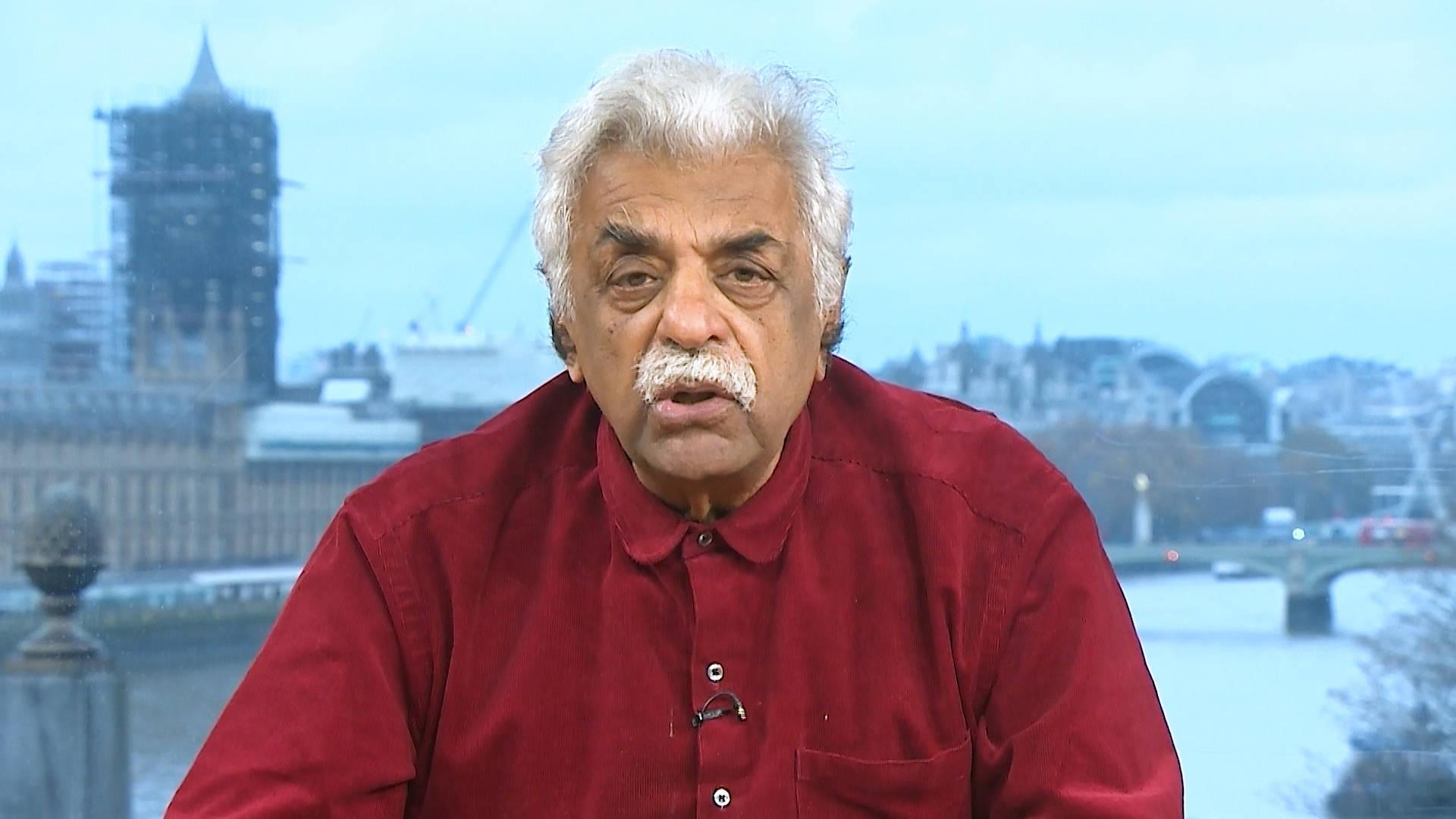Discover The Literary World Of Author Tariq Ali: A Comprehensive Guide
Tariq Ali’s ability to weave complex narratives with clarity and passion has earned him a loyal readership and critical acclaim. His books, essays, and films reflect a deep commitment to challenging the status quo and advocating for social justice. In this article, we will delve into his biography, literary achievements, and the impact he has made on modern thought. By the end of this guide, you’ll have a comprehensive understanding of why Tariq Ali remains a towering figure in contemporary literature and activism. Beyond his literary accomplishments, Tariq Ali’s life is a testament to the power of ideas and the courage to challenge authority. His works often intersect with his activism, addressing issues such as imperialism, capitalism, and resistance movements. From his early involvement in student politics to his role as a public intellectual, Ali has consistently used his platform to amplify marginalized voices and critique entrenched power structures. This article will not only highlight his literary contributions but also explore how his personal experiences have shaped his worldview. Whether you’re interested in his novels, political essays, or historical analyses, this guide will provide you with a holistic view of author Tariq Ali’s enduring legacy.
Table of Contents
- Biography of Author Tariq Ali: A Journey from Lahore to Global Recognition
- Personal Details and Bio Data of Author Tariq Ali
- What Defines the Literary Career of Author Tariq Ali?
- How Has Political Activism Shaped Author Tariq Ali’s Writing?
- Exploring the Major Works of Author Tariq Ali
- What Is the Cultural Impact of Author Tariq Ali’s Works?
- How Has Author Tariq Ali Contributed to Cinema?
- Why Does Author Tariq Ali’s Legacy Matter Today?
- Frequently Asked Questions About Author Tariq Ali
Biography of Author Tariq Ali: A Journey from Lahore to Global Recognition
Tariq Ali was born on October 21, 1943, in Lahore, Pakistan, into a family deeply rooted in intellectual and political traditions. His father, Mazhar Ali Khan, was a prominent journalist, and his mother, Tahira Mazhar Ali, was a women’s rights activist. Growing up in post-partition Pakistan, Ali was exposed to political discourse and activism from a young age. His early education at the prestigious Aitchison College in Lahore laid the foundation for his intellectual curiosity. However, it was his move to England in the early 1960s to study at Oxford University that marked the beginning of his transformation into a global intellectual.
At Oxford, Tariq Ali quickly became a prominent figure in student politics, leading protests against the Vietnam War and advocating for decolonization. His charisma and eloquence earned him a reputation as a formidable orator and activist. During this time, he also began writing extensively, contributing articles to newspapers and magazines. His activism and writings caught the attention of influential figures, including Bertrand Russell, who became a mentor and collaborator. This period was instrumental in shaping Ali’s worldview and commitment to challenging imperialist policies.
Read also:What Is A Boob Drop And Why Does It Matter A Comprehensive Guide
Over the decades, Tariq Ali has continued to evolve as a writer, activist, and public intellectual. His works span a wide range of genres, including novels, essays, historical analyses, and screenplays. Despite facing criticism and censorship, Ali has remained steadfast in his mission to expose injustices and inspire change. His journey from Lahore to becoming a global voice for the oppressed is a testament to his resilience and unwavering dedication to his ideals.
Personal Details and Bio Data of Author Tariq Ali
| Full Name | Tariq Ali |
|---|---|
| Date of Birth | October 21, 1943 |
| Place of Birth | Lahore, Pakistan |
| Education | Oxford University (History) |
| Occupation | Author, Historian, Filmmaker, Activist |
| Notable Works | "The Clash of Fundamentalisms," "The Islam Quintet," "The Dilemmas of Lenin" |
| Awards | Recipient of numerous honorary degrees and literary accolades |
What Defines the Literary Career of Author Tariq Ali?
Tariq Ali’s literary career is marked by its diversity and depth. He has authored over 50 books, spanning fiction, non-fiction, and historical analyses. His works often explore themes of imperialism, revolution, and resistance, making him a key voice in contemporary political discourse. Ali’s ability to blend rigorous scholarship with compelling storytelling has earned him a reputation as one of the most influential authors of our time.
One of the defining aspects of Ali’s literary career is his commitment to challenging dominant narratives. His historical works, such as “The Dilemmas of Lenin” and “The Clash of Fundamentalisms,” offer critical perspectives on major events and figures, often questioning conventional interpretations. Similarly, his fictional works, particularly the “Islam Quintet,” delve into the complexities of history and culture, providing readers with a nuanced understanding of the Muslim world.
Ali’s writing style is characterized by its clarity and accessibility. Despite tackling complex subjects, he ensures that his works are engaging and thought-provoking for a wide audience. This approach has made his books popular among both academics and general readers. Furthermore, his collaborations with filmmakers and journalists have expanded the reach of his ideas, ensuring that they resonate beyond the written word.
How Has Political Activism Shaped Author Tariq Ali’s Writing?
Political activism is at the heart of Tariq Ali’s writing. Throughout his career, he has used his platform to advocate for social justice, critique imperialism, and challenge authoritarian regimes. His activism is deeply intertwined with his literary works, as he often draws inspiration from real-world events and movements.
Ali’s involvement in student politics during the 1960s laid the groundwork for his lifelong commitment to activism. He was a vocal critic of the Vietnam War and played a key role in organizing protests against it. His experiences during this period not only shaped his political views but also informed his writing. For instance, his book “Street Fighting Years” provides a vivid account of the radical movements of the 1960s and their impact on global politics.
Read also:Porfi Maximus Unveiling The Secrets Of Success
In addition to his anti-war activism, Tariq Ali has been a staunch advocate for socialism and anti-imperialism. His essays and speeches often critique neoliberal policies and highlight the struggles of marginalized communities. This activist ethos is evident in his novels, which frequently feature protagonists who challenge oppressive systems. By combining activism with literature, Ali has created a body of work that is both intellectually stimulating and socially relevant.
Exploring the Major Works of Author Tariq Ali
What Are the Key Themes in Author Tariq Ali’s Novels?
Tariq Ali’s novels are renowned for their exploration of history, politics, and culture. His “Islam Quintet,” which includes titles such as “Shadows of the Pomegranate Tree” and “The Book of Saladin,” is a standout example of his ability to blend fiction with historical analysis. These novels transport readers to different periods of Islamic history, offering a counter-narrative to Western-centric portrayals of the Muslim world.
A common theme in Ali’s novels is the tension between tradition and modernity. His characters often grapple with questions of identity, faith, and resistance, reflecting the complexities of their historical contexts. For instance, “The Stone Woman” examines the decline of the Ottoman Empire through the lens of a family saga, highlighting the interplay of personal and political struggles.
Another recurring theme in Ali’s novels is the critique of imperialism. Whether set in medieval Spain or 19th-century India, his stories expose the destructive impact of colonialism and highlight the resilience of oppressed communities. This thematic focus underscores Ali’s commitment to challenging dominant narratives and amplifying marginalized voices.
How Do Author Tariq Ali’s Essays Reflect His Political Views?
Tariq Ali’s essays are a powerful medium for expressing his political views. In collections such as “The Clash of Fundamentalisms” and “The Extreme Centre,” he critiques the rise of religious extremism and the failures of liberal democracy. His essays are characterized by their incisive analysis and unflinching honesty, making them essential reading for anyone interested in contemporary politics.
One of the hallmarks of Ali’s essays is their ability to connect historical events with present-day issues. For example, in “The Clash of Fundamentalisms,” he draws parallels between the Crusades and the War on Terror, arguing that both are rooted in ideological conflicts. This historical perspective enriches his analysis and provides readers with a deeper understanding of current events.
Ali’s essays also reflect his belief in the power of collective action. He frequently highlights the importance of grassroots movements in challenging entrenched power structures. Whether discussing the Arab Spring or the Occupy movement, his writings emphasize the potential for ordinary people to effect change. This optimism is a defining feature of his political philosophy and resonates throughout his essays.
What Is the Cultural Impact of Author Tariq Ali’s Works?
Tariq Ali’s works have had a profound cultural impact, influencing both academic discourse and popular culture. His ability to address complex issues in an accessible manner has made his writings a staple in university curricula around the world. Scholars and students alike turn to his books for insights into history, politics, and literature.
Beyond academia, Ali’s influence extends to the arts. His collaborations with filmmakers, such as Ken Loach and Oliver Stone, have brought his ideas to a wider audience. For instance, his screenplay for the film “In the Name of God” explores the dynamics of religious extremism, offering viewers a nuanced perspective on a contentious issue. Similarly, his documentaries have shed light on underreported topics, further amplifying his cultural impact.
Ali’s works have also inspired a new generation of activists and writers. By challenging conventional narratives and advocating for social justice, he has paved the way for others to follow in his footsteps. His legacy as a cultural icon is a testament to the enduring relevance of his ideas and the power of literature to effect change.
How Has Author Tariq Ali Contributed to Cinema?
Tariq Ali’s contributions to cinema are as significant as his literary achievements. Over the years, he has collaborated with renowned filmmakers to create documentaries and screenplays that address pressing social and political issues. His work in this medium demonstrates his versatility as a storyteller and his commitment to reaching diverse audiences.
One of Ali’s notable contributions to cinema is his screenplay for “In the Name of God,” a film that explores the rise of religious fundamentalism in Pakistan. The screenplay’s nuanced portrayal of the subject matter has been praised for its depth and sensitivity. Similarly, his documentaries, such as “The New World Order,” offer critical perspectives on global politics, challenging viewers to rethink their assumptions.
Through his work in cinema, Tariq Ali has expanded the reach of his ideas, ensuring that they resonate beyond the written word. His ability to adapt his storytelling to different mediums underscores his status as a multifaceted intellectual and artist. This adaptability has allowed him to remain relevant in an ever-changing cultural landscape.
Why Does Author Tariq Ali’s Legacy Matter Today?
Tariq Ali’s legacy is defined by his unwavering commitment to challenging injustice and amplifying marginalized voices. In an era marked by political polarization and social upheaval, his works serve as a reminder of the power of ideas to inspire change. Whether through his novels, essays, or films, Ali has consistently used his platform to advocate for a more equitable and just world.
His legacy also lies in his ability to bridge
Exploring The Allure And Controversy Of 35 Strip Club: A Comprehensive Guide
Exploring The Impact And Influence Of White Pride Radio: A Comprehensive Guide
Why Sukuna Meme Face Is Taking The Internet By Storm: The Ultimate Guide

Tariq Ali 101Pakistanis dot com

Muhammad Ali Wall Art Coloring Home